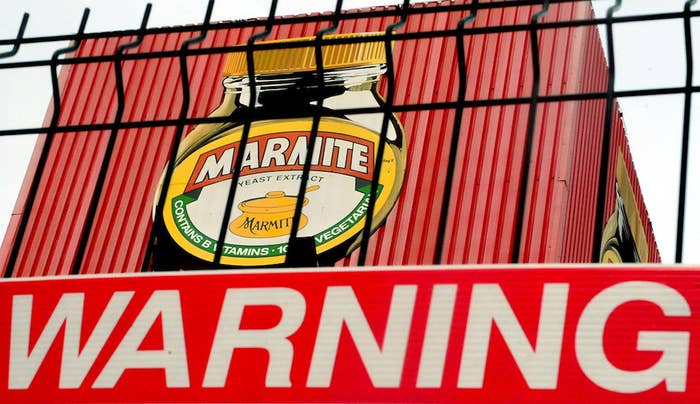
Leading household goods and big-name food brands disappeared from the shelves of Tesco stores on Thursday due to a price dispute with one of the world's biggest suppliers sparked by the fall in the value of the pound in the wake of the EU referendum.
Unilever, the Anglo-Dutch giant that owns scores of household name brands, is reported to have tried to raise the price it charges supermarkets for its goods by 10% to offset a dramatic fall in the value of the pound since the UK voted to leave the EU in June.
The price dispute prompted a front page media frenzy, but by 5:30pm on Thursday the row was reportedly resolved – though the parties were tight-lipped on the terms of any deal.
BREAK: Unilever is pleased to confirm that the supply situation with Tesco in the UK and Ireland has now been successfully resolved. 1/2
2/2: UNILEVER: We've been working together closely to reach this resolution & ensure our much-loved brands are once again fully available.
So, why were Tesco and Unilever fighting?
The UK's supermarkets are engaged in fierce competition with each other over fickle shoppers who are very price-sensitive. To keep their shelf prices low and keep their market share, they're reluctant to accept price hikes from their suppliers.
Unilever – like other big companies in its sector – benefited from the strong pound in recent years that helped keep the cost of imports down. Now that the situation is reversed, it is having to deal with rising costs.
The company has reportedly approached other retailers to suggest that it would increase its prices – it appears that at least in the short term, Tesco has said no. In response, it seems Unilever has halted deliveries to the UK's biggest supermarket chain.
And as a result, a number of brands – including Marmite – are no longer available for sale on the company's website.
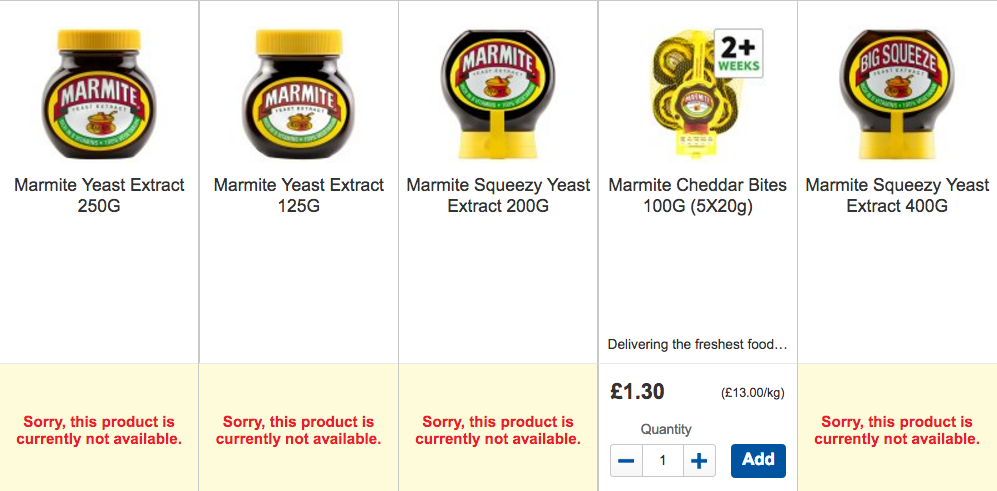
Shoppers are reporting that some stores' supply of some goods is already depleted.
If you're in the mood for a bit of panic buying there's #Marmite at our local @Tesco. Just 6 left. Or you could go to @AldiUK innit.
Is this all about Marmite?
Not even a little bit – it's just that Brits have a serious weird obsession with this divisive yeasty paste.
Unilever actually makes hundreds of household brands, from PG Tips, to Hellman's Mayonnaise, to Wall's ice creams – all of which could, if this isn't resolved soon, disappear from Tesco shelves.
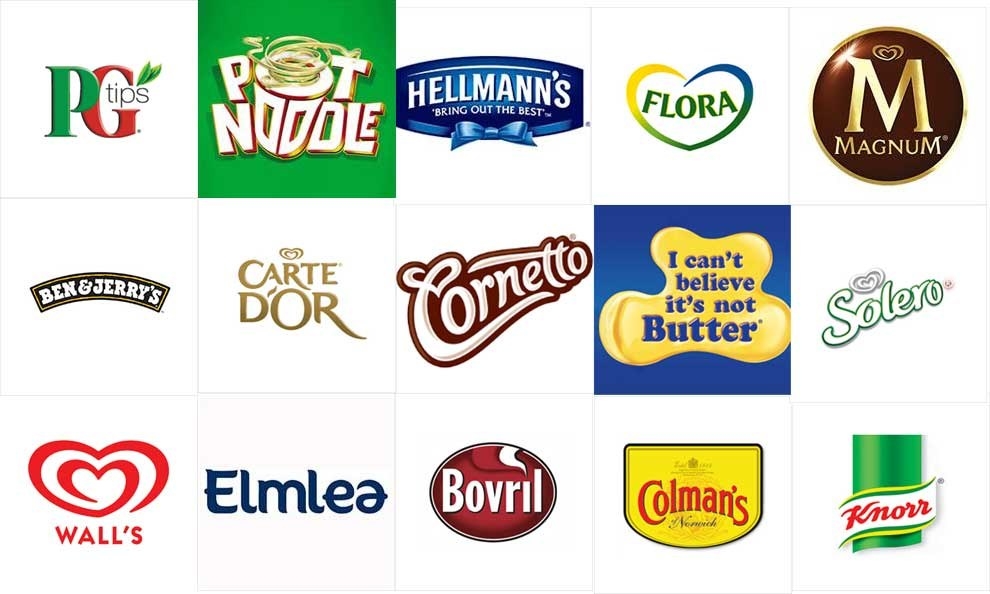
And that's not to mention the cosmetics and lifestyle brands Unilever also owns, such as Dove, Radox, Vaseline, and Lynx. Unilever also makes many brands of laundry and household cleaning products.
Is this row all about Brexit?
It looks like it is. The issue, according to Unilever, is to do with the value of the pound versus other currencies.
Tesco's statement on the row is terse, saying only: "We are currently experiencing availability issues on a number of Unilever products. We hope to have this issue resolved soon."
Unilever has not yet formally commented on the situation and did not respond to BuzzFeed News' request for comment.
But the company's finance director, Graeme Pitkethly, said on Thursday morning that he expected the situation to be resolved quickly, but added: "We are taking price increases in the UK. That is a normal devaluation-led cycle."
"Devaluation" is the technical term for a substantial drop in the value of a currency that's expected to last for a while, and its long-term knock-on effects.
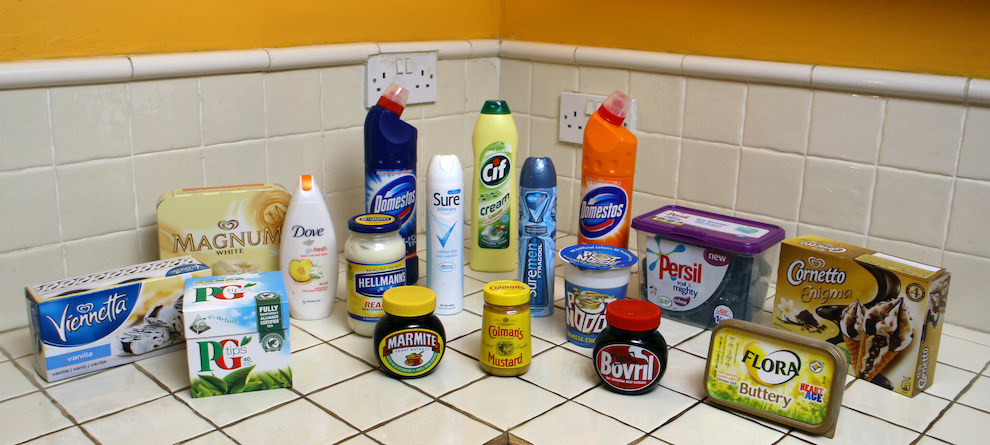
Does Unilever have a point here, or is it just trying to sneak through a price hike because it can?
Commentators are having a fierce row over whether Unilever is justified in trying to put up prices, with some noting that Marmite (which is basically just yeast sludge and salt) is made in the UK with ingredients (waste yeast) sourced from UK breweries.
However, it's not in dispute that the pound has fallen by a lot – it's down 18% versus the dollar and 15% versus the euro since the day before the UK voted to leave the EU.
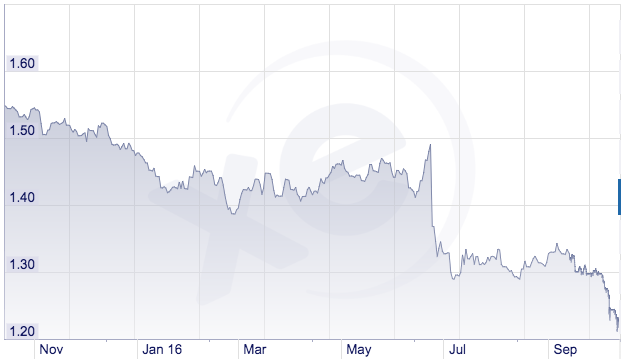
Suppliers like Unilever struggle when the value of the pound drops, as any goods they manufacture overseas suddenly become more expensive.
Something with a cost price of €2, for example, cost £1.54 on June 23 but costs £1.82 today. If supermarkets don’t allow price rises in turn, this hits suppliers’ profit margins – and currency moves on this scale would push most into losses on their UK products.
Hang on, don't Unilever make a lot of their products in the UK?
They do – the company has around 7,000 UK staff and several manufacturing sites here. That said, it's not automatically the case that if a product is made in the UK it's not affected by a fall in the value of the pound.
Currency movements also affect products made in the UK because many of the ingredients in UK food production are imported – the majority of bread made in the UK, for example, is made with Canadian wheat.
They can also be affected even on homegrown ingredients, because as the pound has fallen but the global price hasn't, farmers can sell for a relatively higher price.
Big suppliers like Unilever fix the price of these ingredients for six months or so in contracts, but will be having to renew their supply deals at higher prices following the Brexit vote – pushing up prices again.
Independent experts have warned the currency drop will lead to price rises – Justin King, the former boss of Sainsbury's, told a conference on Wednesday to expect inflation.
“Retailers’ margins are already squeezed," he said. "So there is no room to absorb input price pressures and costs will need to be passed on.
“But no one wants to be the first to break cover. No business wants to be the first to blame Brexit for a rise in prices. But once someone does, there will be a flood of companies because they will all be suffering.”
Look, get to the important bit: Am I going to be able to buy Marmite or not?
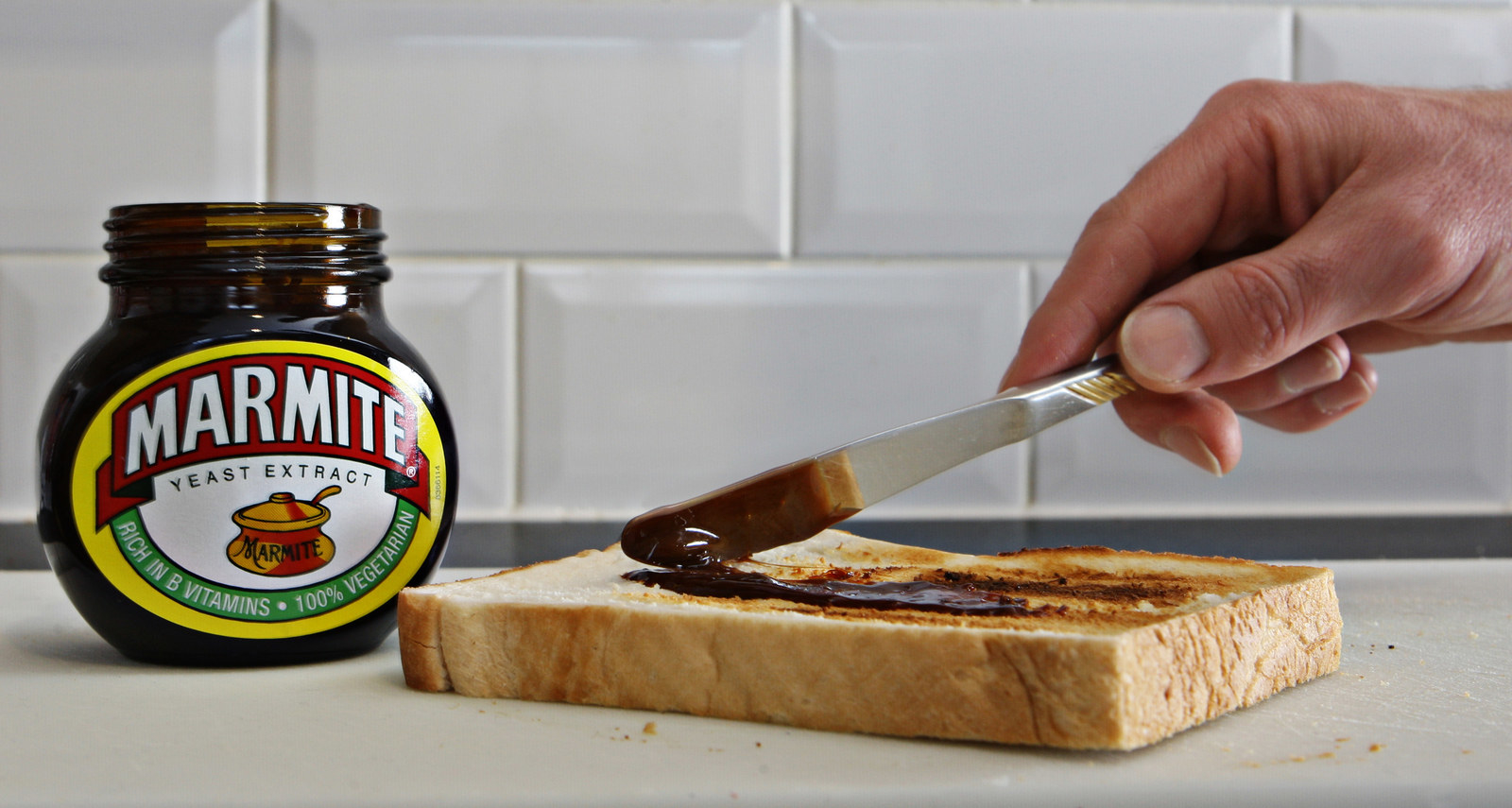
Yes, you will be able to buy Marmite. It's not, as yet, even out of stock in most Tesco stores, and there are no public disputes with other retailers at the time of writing. It's likely Tesco and Unilever will come to an agreement on pricing within a matter of days (if not hours) and end the standoff. (5:30pm update: they did.)
Pricing disputes between leading supermarkets and leading suppliers are common and they have occasionally spilled over into a supply chain deadlock.
In 2011, Tesco stopped stocking some Premier Foods products, such as Hovis and Ambrosia, after the supplier tried to increase its prices by as much as 14%, causing a major drop in sales. The row was quickly resolved behind the scenes and the products restocked.
This row is just the most public sign of ongoing wrangling between supermarkets and their suppliers over pricing – none of the other supermarkets would comment to BuzzFeed News on their negotiations with Unilever or other suppliers.
Such talks, which are held in utmost secrecy, usually centre around the scale and timing of price rises, and ask suppliers to do promotional activities (like bulk buys or temporary discounts) to help mask the price hikes.
Because supermarkets have tight profit margins, typically 5% or less, they are generally unable to absorb any price rises given to suppliers, meaning they get passed on to shoppers.
Food in the UK has fallen slightly in price in recent years – but if the pound stays at its current level, this trend is likely to reverse.
So, you'll get your Marmite. But it will (probably) soon cost a bit more than it used to.

